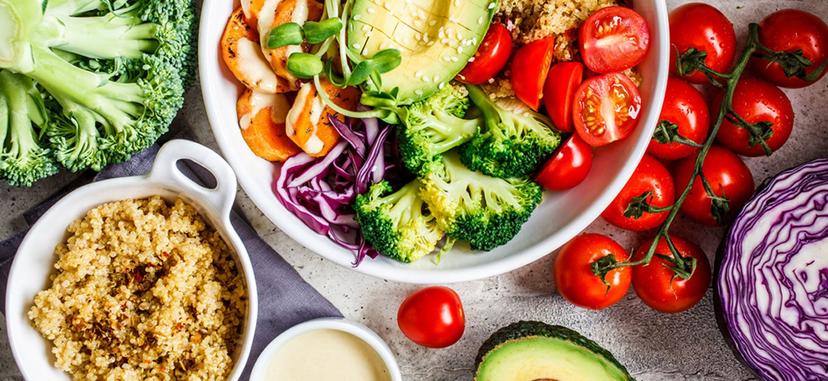A balanced nutrition plan for senior citizens plays a key role in supporting healthy aging. As the body changes with age, focusing on healthy diet for elderly, senior nutrition needs, and balanced diet for older adults helps maintain energy, boost immunity, and improve quality of life. Nutrient-rich foods, proper hydration, and mindful eating patterns reduce the risk of chronic illness. Adding vitamins for seniors, fiber-rich foods, and protein intake for elderly ensures strong bones, better digestion, and mental sharpness. The goal is not just longevity but also living actively, happily, and independently with the right food choices.
.webp)
Importance of Nutrition in Senior Years
The body undergoes natural changes with aging, such as slower metabolism and reduced muscle mass. A nutrition plan for elderly health supports these changes by providing essential nutrients. Proper senior meal planning strengthens immunity, supports cognitive function, and maintains mobility. Seniors who follow a balanced diet for senior citizens experience fewer nutritional deficiencies and stay more energetic. Good nutrition also lowers risks of heart disease, diabetes, and osteoporosis. By focusing on whole foods, hydration, and portion control, older adults can enjoy better physical and emotional well-being every day.
Key Nutrients for Senior Citizens
A strong diet plan for seniors includes a variety of nutrients:
- Protein intake for elderly keeps muscles strong and prevents frailty.
- Calcium and Vitamin D for seniors maintain bone health and prevent fractures.
- Fiber-rich foods for older adults improve digestion and regulate blood sugar.
- Healthy fats for seniors such as omega-3s support brain and heart function.
- Vitamins for seniors like B12 and folate keep the nervous system active.
- Hydration for elderly is equally important to prevent fatigue and confusion.
A colorful plate with fruits, vegetables, lean proteins, whole grains, and nuts makes the healthy diet for elderly both enjoyable and nourishing.

Sample Daily Meal Plan
Creating a practical meal plan for senior citizens helps simplify food choices.
- Breakfast: Oatmeal topped with berries, nuts, and a glass of fortified milk.
- Mid-morning Snack: A banana or yogurt with seeds.
- Lunch: Grilled fish or chicken with steamed vegetables and brown rice.
- Evening Snack: Whole grain crackers with hummus or a fruit smoothie.
- Dinner: Lentil soup or vegetable stew with whole wheat bread.
- Hydration: Water, herbal teas, or infused water throughout the day.
This senior nutrition plan offers variety, flavor, and essential nutrients while supporting healthy digestion, stable energy, and sound sleep.
Lifestyle Tips for Better Senior Nutrition
Healthy eating goes hand in hand with mindful habits. Seniors should practice portion control for elderly, avoid processed foods, and prioritize fresh, home-cooked meals. Regular light exercise like walking or yoga enhances digestion and complements a balanced diet for older adults. Maintaining a meal routine reduces overeating and supports steady energy. Social meals also boost mental health and encourage better food choices, making the healthy diet for elderly more enjoyable and sustainable.

Conclusion
A thoughtful nutrition plan for senior citizens improves overall well-being and adds quality to life. By choosing nutrient-dense foods, staying hydrated, and keeping meals simple yet balanced, seniors enjoy stronger immunity, sharper minds, and greater independence. The combination of healthy diet for elderly, regular movement, and mindful eating ensures graceful and active aging. Every small, consistent choice supports long-term vitality, proving that food truly is the foundation of health at every stage of life.
